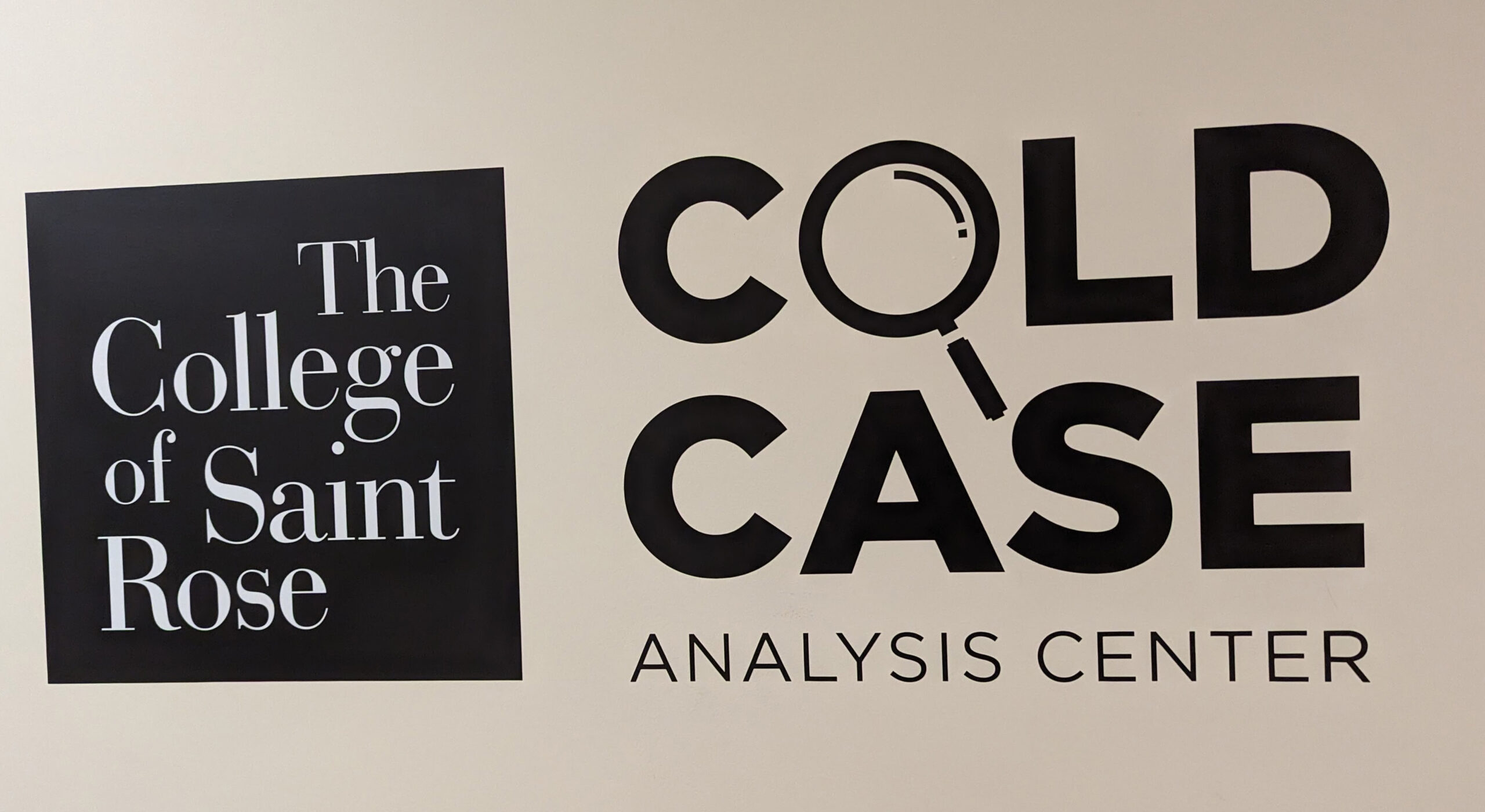By ABBY BRAVO
Editor-in-Chief
The Cold Case Analysis Center (CCAC) is giving students an opportunity to get a taste of real cases and real experience in the field. The CCAC is one of a kind in New York state and only one of six schools nationally that do this type of work.
Students are able to work with real cases given to them by local police departments as well as families asking for help to find their missing loved ones. “Many people look at the program and they don’t realize that, even though we say these are real cases, they don’t realize that they actually are,” said Christina Lane, associate professor of criminal justice and CCAC head. “The students are trusted with privileged information that nobody else is allowed to access,” she said.
Students get to work with the local police departments who visit the students regularly, discuss progress made in their cases, and answer any questions.
Lane and some of her students were a part of Missing Persons Day, which is organized by Mary Lyall, the mother of Suzanne Lyall, a 19-year-old who went missing in 1998. Students involved in the CCAC are actively working on Lyall’s case.
“We got to meet families of missing people and help them out,” said Megan Dellaratta, a senior forensic psychology major. “We mainly focus on aiding the families of the cases that we have,” she said. Dellaratta is on Lyall’s case and she said being able to meet and talk with Mary has been very impactful for her. “Hearing her stories and how her daughter was… she’s [Mary] is an inspiration to me,” said Dellaratta.
The students get a lot out of their experience with the CCAC, including being able to meet with victims’ families and go on crime scene walks as a group. Both CCAC members Lindsey Sullivan and Dellaratta both noted the impact of meeting family members of victims.
“I think the most impactful moment was when I met my victims’ family. They are beyond grateful that people are actively working on their family members’ cases, and care,” wrote Sullivan in an email.
Lane and her students were able to spread the word about the CCAC as well as discuss how important it is to keep these cases alive.
Notable cases include that of Lyall and Jaliek Rainwalker and Ruth Whitman. The group is making progress with Lyall’s case and have begun to connect her case to a potential serial killer that had been in the area around the time of her disappearance. While there is no confirmed connection, they are working to confirm or deny the relation.
The students involved in the CCAC are working on eight cases at the moment, some of which they are unable to disclose any information about.
There is a lot of confidential information that students are given and they must sign privacy contracts when they begin working in the center to prevent information leaks. Breaking this contract can result in expulsion from the college as well as have legal repercussions.
Students must register for a specific three-credit course to participate in the CCAC, but it is designed like an internship, even though the special issues with these cases meant that it could not actually be an internship.
“With internships here at Saint Rose, you have the academic supervisor and you have a site supervisor and because of the privileged confidential information that the students work with, we changed it and made it a course that only I actually am privy to the information that’s done in the center,” said Lane.
Students are able to participate in the CCAC by taking one of Lane’s classes and sending in an application. They only accept applications in the Fall semester, and a one-year commitment to the center is heavily recommended. This commitment is so students can immerse themselves in the cases as well as the fact that cold cases are often slow moving.
For the time being, the center is primarily students studying forensic science, forensic psychology and criminal justice, but Lane discussed opening up the CCAC to all majors (as long as they still take a class with her first).
“I am interested in taking students from other majors because each major has something to contribute to explaining a criminal event,” said Lane. “It’s not only hoarded by one discipline, there’s many reasons why things transpire and each discipline contributes an explanatory value to that event.”
Lane puts a lot of emphasis on how her students are doing this very important work and are able to learn and grow their skills through the CCAC.
“It’s all about the work and the students. Many of the students say what they get out of the course is critical thinking… they say that things they never would have paid attention to they do now,” said Lane.
Sullivan, a criminal justice major, has been involved with the CCAC for two years. She was able to be a part of the exhumation of a victim, Ruth Whitman, from a case she had been working on throughout her time with the CCAC. This specific case is over 60 years old and most of the evidence has been lost over the years. Still, they were able to uncover enough to find crucial information about where she was killed. “This is something that officers can go their entire careers without witnessing so to be able to see if before I start mine is really special,” said Sullivan.
The CCAC is expanding and is beginning to work with more police forces, like the Vermont State Troopers, and also hope to gain more students and a larger space to work on more cases at a time to make a bigger difference in the community.
“I do this for the students, because the students feel valued and it gives them worth.What they do is not just a homework assignment… they’re actually making a difference, making people realize that loved ones aren’t forgotten,” said Lane.


